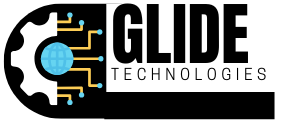Table of Contents
ToggleIn a world where software is just a click away, Software as a Service (SaaS) companies are the superheroes of the digital age. They’re here to save the day, one subscription at a time. Forget about clunky installations and endless updates—SaaS makes accessing powerful tools as easy as pie. Whether you’re a small business owner or a tech giant, there’s a SaaS solution ready to swoop in and rescue you from your software woes.
Overview of SaaS Companies
SaaS companies deliver software solutions via the internet, allowing users to access applications without the need for physical installations. Business productivity tools, customer relationship management (CRM) software, and collaboration platforms exemplify common SaaS offerings.
Cost efficiency ranks among the primary advantages, as clients often pay subscription fees instead of hefty upfront costs. Monthly or annual payments provide flexibility in budgeting for both small businesses and large enterprises.
User accessibility becomes crucial for many organizations. Employees can access applications from any device with an internet connection, enhancing remote work capabilities. This accessibility fosters collaboration and communication across teams, regardless of location.
Security features are vital for SaaS providers. Many companies invest heavily in data protection, ensuring that user information remains safe through compliance with regulations like GDPR and HIPAA. Regular updates from providers keep security measures current, minimizing risk for clients.
Integration with other software improves operational efficiency. Many SaaS applications offer APIs that allow seamless connectivity with existing tools, enhancing workflows and data management. Businesses often find that the ability to integrate with other systems boosts productivity and streamlines processes.
Scalability is another significant benefit of SaaS. Companies can quickly adjust their subscription plans as they grow, making it easy to accommodate varying user needs. This flexibility encourages companies to experiment with new applications without the fear of long-term commitments.
By emphasizing ease of use and simplifying the software experience, SaaS companies continue to thrive in today’s digital climate. Their adaptability positions them as key players in shaping the future of business technology.
Prominent Examples of SaaS Companies
SaaS companies provide various software solutions tailored to meet diverse business needs. Here are several notable categories where SaaS excels.
Customer Relationship Management (CRM)
CRM software plays a crucial role in managing a company’s interactions with current and potential customers. Popular examples include Salesforce, HubSpot, and Zoho CRM. Salesforce offers comprehensive features for sales, marketing, and customer service, making it a leader in the space. HubSpot combines CRM capabilities with marketing tools, which attracts businesses seeking all-in-one solutions. Additionally, Zoho CRM is favored for its affordability and customization options, appealing to startups and small enterprises.
Project Management Tools
Project management tools enhance collaboration within teams and streamline tasks. Prominent options include Asana, Trello, and Monday.com. Asana enables teams to create, assign, and monitor tasks effectively, providing visibility into project progress. Trello uses boards and cards to help users organize their workflow visually, which simplifies task management. Monday.com offers customizable workflows that cater to various industries, enhancing operational efficiency.
Email Marketing Services
Email marketing services provide businesses with tools to effectively reach their audience. Leading options comprise Mailchimp, Constant Contact, and Sendinblue. Mailchimp stands out for its user-friendly interface and powerful automation features, making it suitable for both novices and experts. Constant Contact excels in customer support, ensuring users receive help when needed for their campaigns. Sendinblue combines email marketing with SMS capabilities, appealing to companies seeking a multi-channel approach for customer engagement.
Industry-Specific SaaS Solutions
SaaS companies cater to multiple industries with tailored software solutions. These offerings streamline operations and enhance productivity across various sectors.
Healthcare SaaS Companies
Healthcare-specific SaaS companies provide critical solutions for patient management and electronic health records (EHR). Examples include Epic Systems and Cerner, which facilitate efficient data sharing among healthcare providers. Telehealth platforms like Teladoc allow patients to consult with physicians remotely, ensuring accessible care. By utilizing these platforms, healthcare organizations reduce administrative burdens. Providers often benefit from enhanced data analytics capabilities that improve patient outcomes.
Financial Services SaaS Companies
Financial services companies rely on SaaS for solutions like accounting and compliance management. Notable players include Intuit’s QuickBooks for bookkeeping and Xero for cloud-based accounting services, which simplify financial tracking. RiskPoint offers risk management software that helps businesses navigate regulatory challenges effectively. Businesses also leverage platforms like Stripe and Square for payment processing, making transactions seamless. Such SaaS offerings enable financial institutions to enhance efficiency while maintaining compliance with ever-evolving regulations.
Benefits of Using SaaS Companies
Cost efficiency arises as a primary advantage for SaaS users, who pay subscription fees rather than large upfront costs. Flexibility in budgeting supports businesses of all sizes, making software affordable and accessible. User accessibility stands out, as employees can access applications from any internet-connected device. This capability increases remote work potential and fosters teamwork across different locations.
Data security serves as a critical concern, driving SaaS providers to invest heavily in protective measures and regulatory compliance. Many companies prioritize privacy by implementing protocols that meet standards like GDPR and HIPAA. Regular updates keep security features current, minimizing risks and reinforcing trust among users.
Integration improves operational workflows, allowing SaaS applications to connect seamlessly with existing tools via APIs. Enhanced productivity results from smooth connectivity, streamlining processes across departments. Scalability features enable businesses to adjust their subscription plans in response to growth, promoting flexibility in software utilization.
Ease of use simplifies technology interactions for employees, allowing them to focus on tasks instead of troubleshooting installations. Businesses benefit from testing new applications without long-term commitments, supporting innovation and adaptation in a fast-paced environment. SaaS solutions continue to thrive, driving digital transformation and shaping the future of business technology.
Challenges Faced by SaaS Companies
SaaS companies encounter various challenges that impact their operations and growth. Competition remains fierce, as numerous providers vie for market share. Many companies struggle to differentiate themselves, making unique value propositions crucial.
Customer retention presents another hurdle. High churn rates can threaten stability, necessitating continuous efforts to enhance user experience and satisfaction. Pricing strategies also pose challenges, as SaaS companies must balance affordability with profitability.
Security concerns rank high among challenges, with data breaches capable of damaging trust and brand reputation. SaaS companies invest heavily in security measures to protect user information and comply with regulations like GDPR and HIPAA. Frequent updates keep systems secure, but ensuring seamless user experiences during these updates is essential.
Additionally, integration with other software can cause complications. While APIs enhance connectivity, they can lead to compatibility issues that require technical support. SaaS companies must prioritize ensuring that integrations function smoothly to avoid disrupting workflows.
Scalability remains a double-edged sword. While the ability to scale services is a benefit, unexpected demand growth can strain resources and lead to performance issues. Companies must prepare infrastructure accordingly to manage customer load effectively.
Finally, evolving technology trends create continuous pressure. Adapting to new innovations and user needs is vital for staying competitive. Successful SaaS companies keep pace with technology developments, focusing on flexibility and innovation to meet market demands.
SaaS companies are reshaping the landscape of business technology by providing accessible and efficient software solutions. Their ability to enhance collaboration and streamline operations makes them invaluable across various industries. With a focus on user experience and security, these companies not only meet the demands of modern businesses but also drive digital transformation. As the SaaS market continues to evolve, the importance of innovation and adaptability remains critical for companies aiming to maintain their competitive edge. The future holds exciting possibilities for SaaS, promising continued growth and enhanced capabilities for users everywhere.



